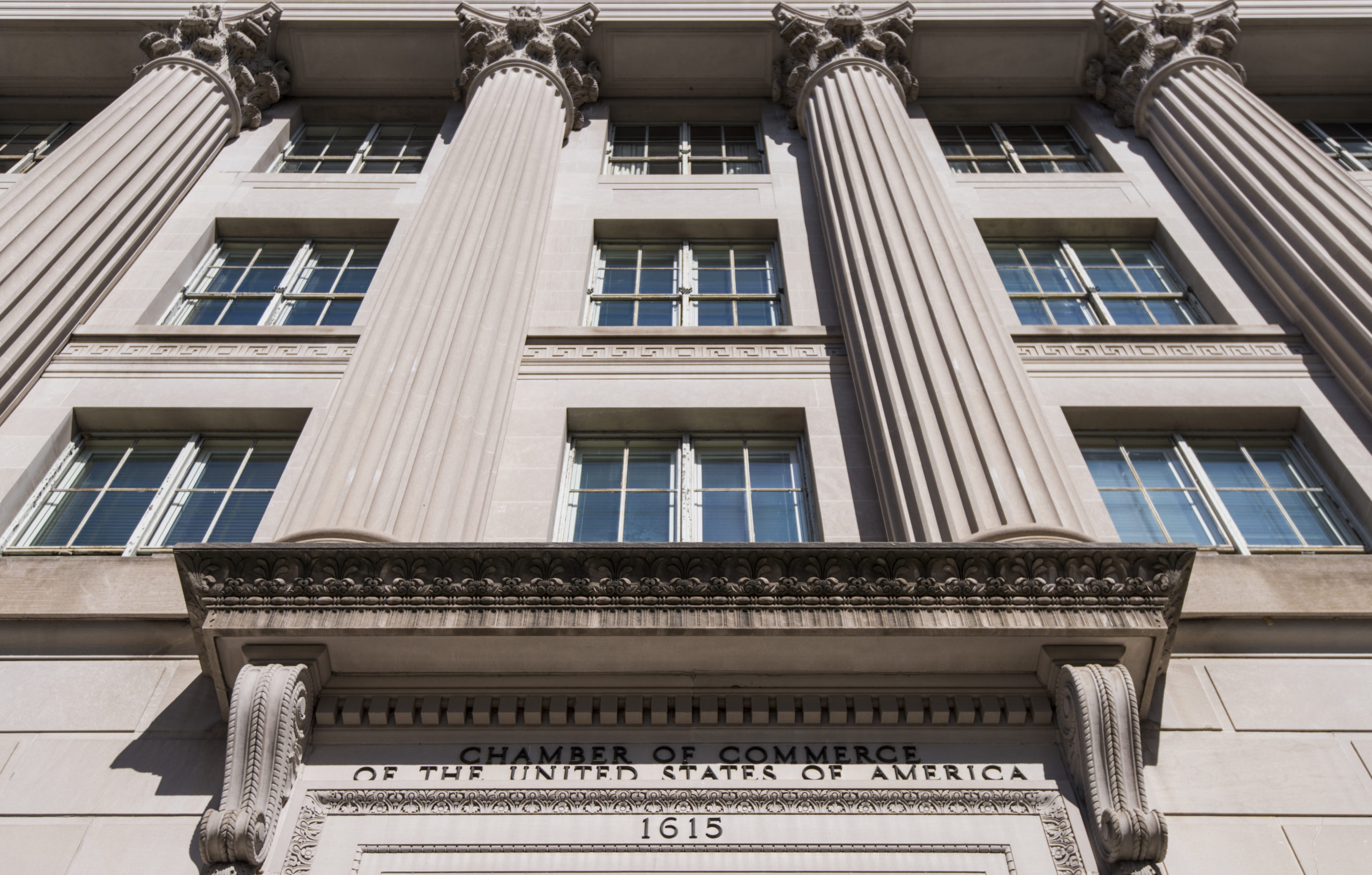Reports
The U.S. Chamber’s History of Voter Suppression

The U.S. Chamber has a long history of backing voter suppression and gerrymandering efforts across the country.
Amid a nationwide wave of voter suppression efforts, the U.S. Chamber Of Commerce, the “world’s largest business organization,” has shown “fierce” opposition to urgently-needed voting rights reforms in H.R. 1, the For the People Act. The U.S. Chamber has called the bill “extremely problematic” and has complained that it would silence corporations and industry associations. Meanwhile, major Chamber members that have claimed opposition to voting suppression—including Ford, Target, Google, and many others—have faced calls to sever their ties with the group.

However, the Chamber’s problematic stance on voting rights is not new. The group led opposition to the first version of the For the People Act introduced in 2019 and lobbied on the bill in eight consecutive quarters since mid-2019—a period during which the Chamber spent over $129 million to influence federal policymakers.
Beyond the U.S. Chamber’s opposition to the For the People Act, the group’s efforts to aid and abet voter suppression across the country have had a widespread impact. The Chamber has poured over $7.4 million into the Republican State Leadership Committee (RLSC), emerging as one of the group’s top two funders during the 2016 and 2018 election cycles. The RLSC has attacked a judge who struck down an Arkansas Voter ID law and in 2021 launched a so-called “voter integrity” commission that has been panned as a coordinated voter suppression effort. The Commission has called for a variety of measures that experts say will have the effect of disproportionately harming voters of color.
And, as far back as 2010, the U.S. Chamber “hatched” and funded a conservative-led redistricting project known as REDMAP, which targeted 107 state legislative races in 16 states and was condemned by voting rights advocates as having “cracked, stacked, packed and bleached Black voters” to reduce their political representation.
Additionally, the lead attorney for Shelby County in the Supreme Court’s landmark decision to weaken the Voting Rights Act in Shelby v. Holder – Bert Rein— is a current director for the U.S. Chamber Litigation Center, and his firm has filed a Supreme Court amicus on behalf of the Chamber as recently as March 2021. Underlining the long-term impact of Rein’s work in the Shelby case, Brookings Institution contributors have argued that the wave of 2021 voter suppression bills across the country are “the aftermath” of the Shelby v. Holder decision.

The Chamber has also spent at least $56,000 to directly back prominent opponents of voting rights reform, including:
- $16,000 To Rep. Bob Goodlatte (R-VA), Who Single-Handedly Blocked Critical Voting Rights Legislation In The U.S. House.
- $15,000 To House Republican Leader Kevin McCarthy (R-CA), Who Undermined Voting Access Measures And Voting Rights Legislation, Calling It “Disgusting” And “Unnecessary.”
- $15,000 To Sen. Cindy Hyde-Smith (R-MS), Who Backed Voter Suppression Efforts And Joked That Laws That Made It Harder For Students To Vote Were “A Great Idea.”
- $5,500 To Sen. Ted Cruz (R-TX), Who Claimed The For The People Act Would Keep “Democrats In Power For 100 Years” and Perpetuated “Unsubstantiated Allegations Of Voter Fraud.”
- $4,500 To Rep. Dan Crenshaw (R-TX), Who Undermined The 2020 Election Results And Spread Doubt About Voting Systems And Laws.
